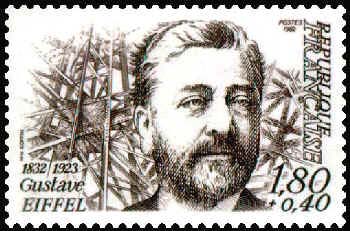Welcome to Fabulous Paris Las Vegas
What happens here, stays here.
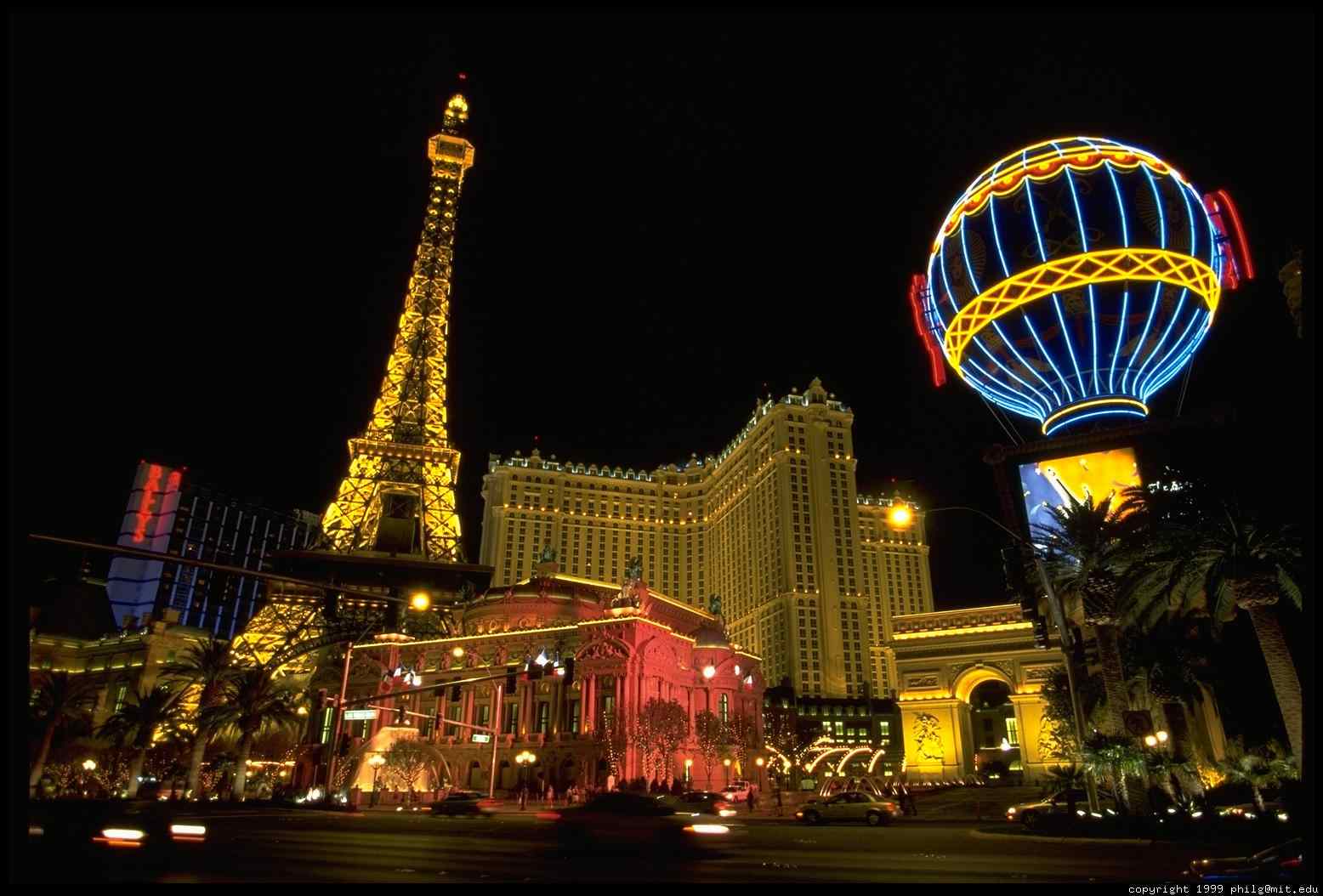
The Paris Las Vegas hotel, "an $850 million
hotel-casino designed to look like Paris's Hotel de Ville," opened in September of 1999
(Levenstein 287). The hotel's attractions include "a fifty-story replica of the Eiffel Tower
as well as copies of the Arc de Triomphe (two-thirds the actual size) and the Louvre"
(Levenstein 287). When visiting the Eiffel Tower, visitors can "travel in a glass elevator
to an observation deck for panoramic views of the valley and moutains and the fountains at
the Bellagio (Benson 57). For a hefty price, visitors can stay in rooms "facing the half-scale
Eiffel Tower and the dancing fountains of the Bellagio," even though in the real Paris, such
a view is quite rare (Benson 190). There are fake cobblestone streets and "beret-wearing
employees...dressed in striped T-shirts and red kerchiefs, carrying baskets of baguettes
and singing 'Alouette'" (Levenstein 287). However, all of these characteristics are secondary
to the Eiffel Tower's presence. They make sense only because it exists and is attached to the
"Paris" name. In this way, the employees, the "croissants flown in daily from Paris," and even
the additional monuments are syntagmatic signs; they "gain their meaning from the signs that
surround them" (Levestein 287, Rose 84).
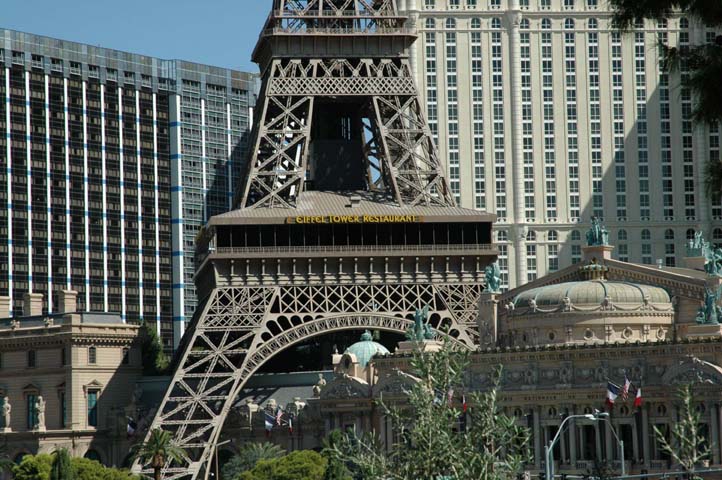
| Because this Eiffel Tower is attached to a hotel and casino, this differentiates it
from those in Paris and Orlando. Actually, one leg of the tower comes down next to the hotel's
entrance, making it just as much a part of the hotel's design as it is an additional entertainment
attraction. Since visitors can ride to the top, Paris Las Vegas truly wants to provide an experience
as close to, without actually being, the Parisian Eiffel Tower as possible.
|
Harvey Levenstein, quoting Maureen Dowd, says Paris Las Vegas is "'one humungous Gallic cliche'"
(Levenstien 288). However, he wonders "whether that is not what most of us want from France, or
indeed of any other foreign destination" (Levenstein 288). In fact:
"In this age of mass tourism, where so many of the things we travel to see are subject to
overcrowding and physical deterioration, there may be little choice but to pull up some of the
most attractive ones from their dying roots and preserve or reproduce them for the delectation
of paying visitors" (Levenstein 288).
It seems this is globalization simultaneously at its best and worst. However, it does say a
great deal about the Eiffel Tower's consistency as a sign, similar to that of many other famous
places or monuments found in realistic reconstructions. If symbolically, the Eiffel Tower has
enough control over a person's experience to simulate the experience of France without being
there, then few people have any motivation to go see the real creation in Paris. Foundationally,
it depends on why they want to see it in the first place. If seeing the Eiffel Tower is about
being in Paris, then a trip to France is necessary. However, if seeing the Eiffel Tower is about
feeling in Paris, then why not acquiesce, get off cheap, see the half-size version, and do some
gambling while you're at it?
Not only this, but according to Lonely Planet's 2006 Las Vegas guidebook, "Vegas is the ultimate
escape. Give it a few days, and it'll give you the world. Any whim can be gratified instantly"
(Benson 6). The real Paris isn't exactly a land of instant gratification, nor is it a 24/7
entertainment kind of town. Therefore, the Eiffel Tower in Paris Las Vegas is not one sought
after for exact authenticity, but this works because not every tourist craves authenticity.
According to Crouch and Lubbren, "Tourism is popularly referred to as 'being there'" (Benson 6). Anyone
can get away with going to Paris Las Vegas, and coming home with pictures effectively simulating
the actual Eiffel Tower in Paris. For those without proper knowledge to make the distinction,
there is no distinction to be made. In this way, the Eiffel Tower helps Paris Las Vegas operate
as an institutional apparatus by offering itself as a truth claim. In other words, this particular
hotel and casino is saying - "If we have an Eiffel Tower, you know we're legitimate."
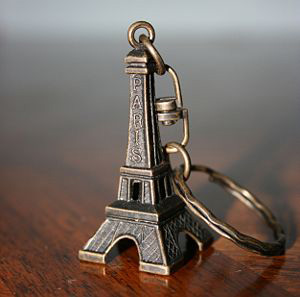


Images and souvenirs coming home from the Eiffel Tower in Vegas, like those coming home from the
real thing, are not easily recontextualized. Unless, of course, someone wants them to be. Honestly,
it is more likely for visitors to this Eiffel Tower to convince others they were really there, since
the surrounding syntagmatic signs fulfill our place-myth perception of Paris more than the Parisian
reality. Therefore, the symoblic power of Vegas' Eiffel Tower for non-Parisians and the
recontextualization of it do not change in its travels from France to Nevada. It upholds the power
of standing for Paris, France, and Frenchness, and very rarely can mean anything else. Additionally,
visitors can easily turn the simulated experience into a real one, simply by claiming it. After all,
what happens there stays there. No one ever has to know it's not real.
For other, less glamorous Eiffel Tower locations,
please click images below.
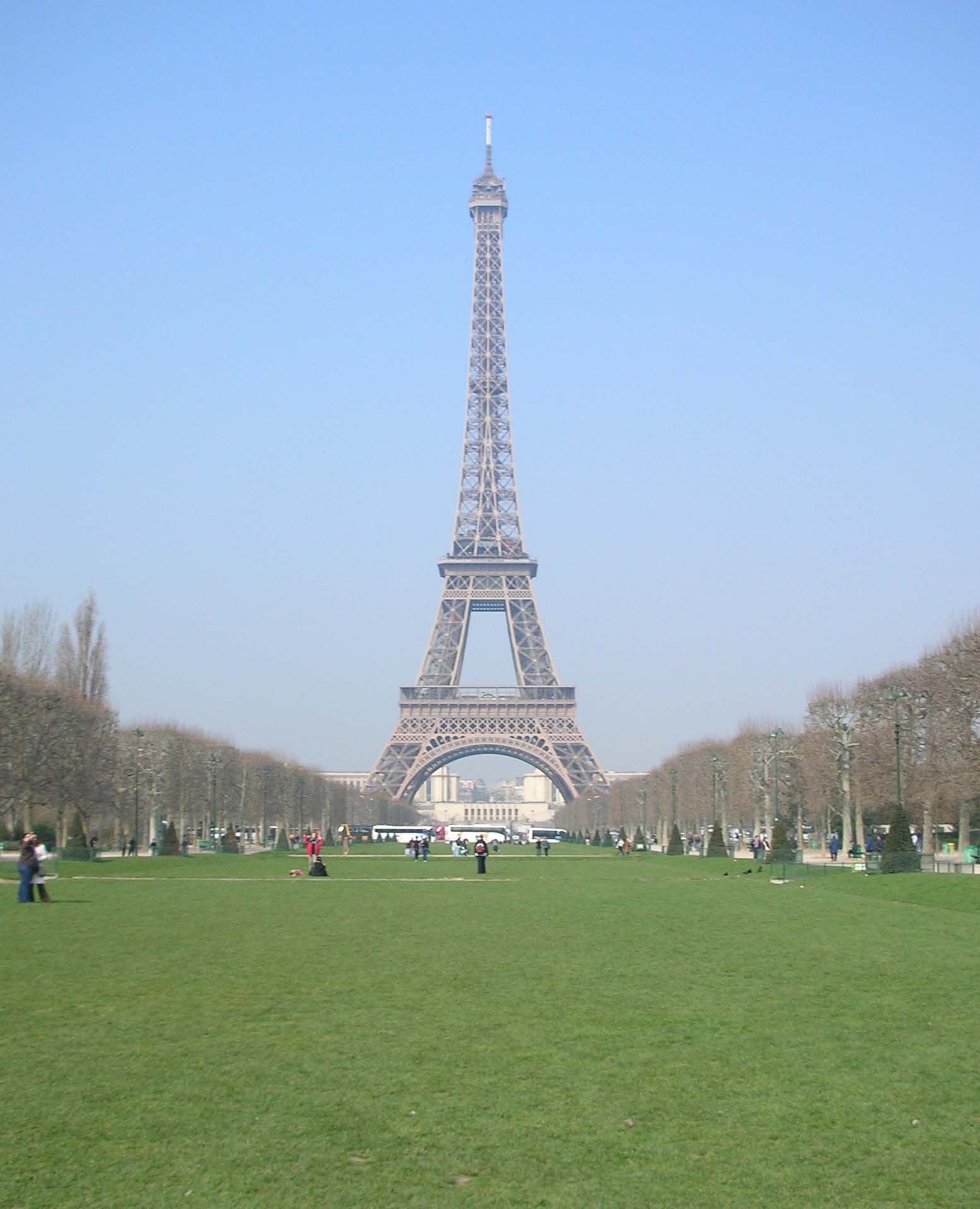
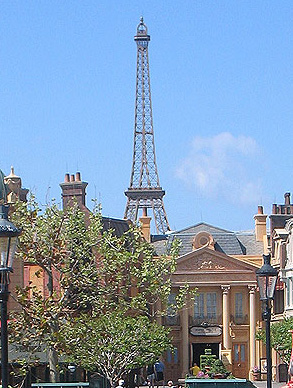 What do you think of when you see the Eiffel Tower?
Drive carefully, come back soon.
What do you think of when you see the Eiffel Tower?
Drive carefully, come back soon.
If you don't know Gustave, you should.
